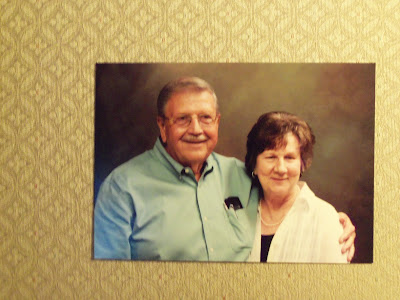THESE AREN'T CUSTER'S CALVARYMEN
Several hundred Vietnam War enthusiasts will converge on
Grandover Resort June 1, 2016. From
Michigan to Atlanta, from Texas to New Bern, North Carolina, they’re coming to
hear Joe Galloway talk about the Battle of la Drang and his best-selling book,
We Were Soldiers Once…And Young.
 |
| GRANDOVER RESORT -- GREENSBORO, NC |
This talk is the West Point Society Piedmont’s idea of
celebrating the 50th Anniversary of the Vietnam War. The luncheon meeting is by reservation only
-- details and registration available at https://secure.west-point.org/wps-piedmont/luncheon/.
The November, 1965 Battle of la Drang was the first major
battle of the Vietnam War. Joe Galloway
was the only war correspondent on the ground during the battle. For his bravery in rescuing wounded soldiers
under fire, the Army awarded him a bronze star.
Of Galloway, a
Vietnam veteran wrote, “Joe has been one of the few from the media who has been
kind to us – he is a wonderful spokesman for our involvement.”
Several members of the 1st Battalion, 7th
Cavalry, 1st Cavalry Division (Airmobile), including Medal of Honor
recipient, Joe Marm have registered to attend.
While the North Carolina Vietnam Helicopter Pilots
Association and North Carolina Chapter of the 1st Cavalry Division
Association will turn out in force to join their Air Cavalry peers, they will
not lunch alone – Air Force, Navy, Marine Corps, and Coast Guard veterans –
many who served in Vietnam – will join them.
Officers from second lieutenants to generals will be on
hand. At least one command sergeant
major will attend. Probably, more than
one private will show up. While rank
will have no privileges at this gathering – peace and decorum will not be a
problem -- the group’s DNA is built around military courtesy.
One command sergeant major will be noticeable by his absence
– CSM Basil L. Plumley. The veteran of
three wars and iconic senior enlisted leader during the Battle of la Drang died
in 2012 at the age of 92. Galloway will
see to it that Plumley’s legacy is not forgotten.
It should also be noted that a huge number who did not serve
militarily will be on hand to share the moment, including spouses, parents,
children, grandchildren, friends, and some who just want to give Vietnam
veterans the “Welcome Home,” they deserve.
“Grandchildren” was not a typo – “Thanks for opening this up
to the public, this allows my husband and me to share my grandfather’s heritage
– he served in Vietnam as an Air Force electronics warfare officer, wrote a
respondent.”
Given the Air Cavalry’s war-fighting technique, a litany of interesting
military occupational specialties have surfaced among the registrants, including
helicopter pilot, door gunner, flight engineer, mechanic and crew chief.
A Navy SEAL veteran of Vietnam and his wife, whose son is
currently serving as a SEAL, a Riverine Boat Captain, a Naval Advisor, and an
engineman will be among those representing the Navy.
Air Force-wise, there will be the Greensboro reservist whose
crew flew to Hanoi in 1994 to repatriate the remains of two servicemen back to
the U.S.
Among the Marines on hand will be three brothers – two
served in Vietnam, the third is a MGySgt USMC (Ret.). Also noticeable are over a dozen registrants
from the Greensboro Marine Corps League – including veterans of World War II,
Korea, Vietnam, Iraq and the Gulf Wars.
A Gold Star Wife has registered, as has a 94-year old purple
heart, bronze star recipient from World War II.
Several highly decorated Special Forces and Army Ranger veterans will be
on hand.
The Human Resources Director of one of the largest Triad
manufacturers, and possibly the largest employer of veterans wrote, “My
Battalion Commander considered We Were Soldiers Once required reading. I’ve read it more than once, seen the movie,
and followed Mr. Galloway and General Moore throughout their careers – I will
be at the luncheon, as will a large number of my employees.”
Not that they would want it mentioned, but the West Point
Society will be the majority block at the luncheon – as it should be. They’ve done the heavy lifting to make this a
signature event, both for the Triad and for 50th Anniversary
observances.
The
West Point Society Piedmont consists of West Point graduates, their spouses,
families, and a broad cross section of the community -- meetings are open to
the public. The organization supports the U.S. Military Academy and
members of the Armed Forces.
Three West Pointers are shown in the photograph above. Among numerous personal
decorations, Dr. Mike Brennan, Colonel USA (Ret.), and Ted Crichton, Brigadier
General USAF (Ret.) hold distinguished service medals. Bill Trivette, Lieutenant Colonel, USA (Ret.)
is President of the West Point Society of the Piedmont.
Registration will close on Friday, May 27, 2016, or sooner
if all seats are sold. Current
information is available at https://secure.west-point.org/wps-piedmont/luncheon/.
























